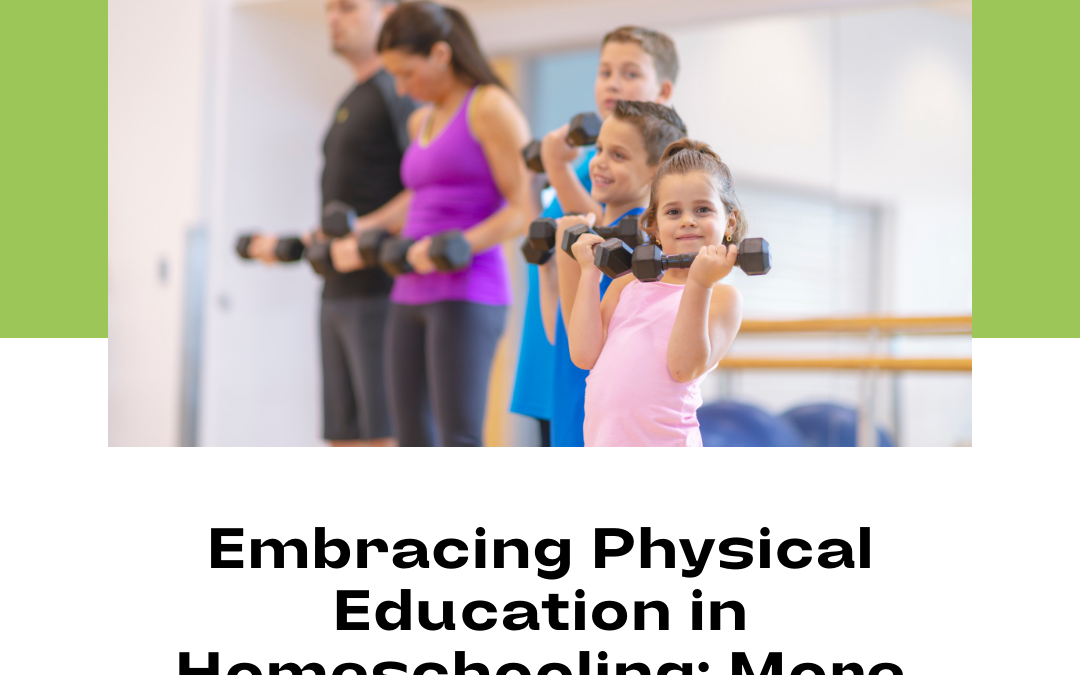Hi everyone!
Over the past months, we have discussed and shared ideas related to Language Arts, Math, Science and Social Studies. As we continue to explore the diverse facets of homeschooling, this week, I’m excited to dive into a subject that is occasionally overlooked: Physical Education (PE). It’s more than just getting the body moving; it’s about nurturing a holistic understanding of health, wellness, and the body.
What PE Is and Isn’t
Let’s dispel a common misconception first — PE isn’t just about running laps or doing push-ups. While those are important components, PE in homeschooling encompasses so much more. It’s about empowering our children to understand their bodies, cultivate healthy habits, and appreciate the value of physical activity in their lives.
For my boys, who are competitive soccer players, PE extends beyond the need for physical activity at home. It’s about delving into the intricacies of their bodies, learning about proper stretching techniques, exploring nutrition to fuel their performance, and embracing cross-training to enhance their skills on the field.
On the other hand, for my daughter, who may be less physically active, incorporating fitness into homeschooling has taken on a different significance. It’s about instilling the importance of regular movement, finding activities she enjoys, and promoting a positive relationship with exercise that extends beyond structured sports.
Don’t forget that PE has to start somewhere. Remember to utilize resources for your students so they can learn about new ways to work physical education into their lives. Books, videos, articles, workshops, and more are all great places for your student to start accumulating knowledge.
Why PE Matters in Homeschooling
PE isn’t just a checkbox on our homeschooling to-do list; it’s an integral part of our children’s overall development. Here’s why:
- Physical Health: Engaging in regular physical activity promotes cardiovascular health, strengthens muscles and bones, and boosts immunity. It lays the foundation for a lifetime of good health habits.
- Mental Well-being: Exercise has been shown to reduce stress, anxiety, and depression, while improving mood and cognitive function. It’s a powerful tool for supporting our children’s mental well-being.
- Lifelong Skills: Through PE, our children learn valuable skills like teamwork, leadership, resilience, and goal-setting — skills that extend far beyond the playing field and into every aspect of their lives.
- Body Awareness: PE provides opportunities for our children to learn about their bodies — how they move, how to prevent injuries, and how to listen to their bodies’ signals. This knowledge fosters a sense of autonomy and self-care.
- Healthy Habits: By incorporating lessons on nutrition, sleep, and overall wellness, PE helps our children develop lifelong habits that contribute to their overall health and vitality.
So whether it’s exploring yoga, dance, martial arts, or simply going for a nature hike, let’s embrace PE in our homeschooling journey. Let’s empower our children to cultivate healthy bodies, resilient minds, and a lifelong love for physical activity.
Next week, we will share ideas and resources from our Educational Design Experts, so stay tuned. Here’s to raising happy, healthy, and active learners!
Kindly,
Kara Parkins, Parent Support Advisor

